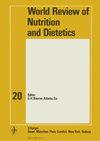重新思考澳大利亚在可持续发展目标国际合作中的作用:通过三方合作建立变革性横向伙伴关系
4区 医学
引用次数: 1
摘要
尽管在各个发展领域取得了进展,但粮食不安全、营养不良和贫困率仍然很高。气候变化、生物多样性丧失和环境退化等额外的环境压力继续不成比例地影响着最脆弱的群体。正如《2030年可持续发展议程》所强调的那样,包容性合作行动模式在解决发展挑战、促进可持续发展成果和实现可持续发展目标方面的潜力受到重视。国际合作政策在塑造这些国际伙伴关系如何在实践中发挥作用方面起着至关重要的作用。在过去的几十年里,国际发展合作的格局随着更多“横向”伙伴关系的推动而发生了变化。三方合作是一种具有包容性和横向性的潜在伙伴关系模式,被视为实现可持续发展议程的一种手段。在澳大利亚,2022年5月新一届联邦政府的选举带来了对官方发展援助和发展合作政策及伙伴关系的重新承诺。这篇评论的目的是评估、暂停和反思澳大利亚目前如何“开展发展伙伴关系”,以及展望未来和变革的机会。本文章由计算机程序翻译,如有差异,请以英文原文为准。
Rethinking Australia’s role in international co-operation for the Sustainable Development Goals: Towards transformative horizontal partnerships through triangular co-operation
Despite progress in various areas of development, rates of food insecurity, malnutrition and poverty remain high. Additional environmental pressures such as climate change, loss of biodiversity and environmental degradation continue to disproportionately impact those who are most vulnerable. Inclusive models of co-operative action, as emphasised in the 2030 Sustainable Development Agenda, are valued for their potential to solve development challenges, promote sustainable development outcomes, and to achieve the Sustainable Development Goals. International co-operation policy plays a crucial role in shaping how these international partnerships play out in practice. Over the several decades, the international development co-operation landscape has been shifting with a push for more ‘horizontal’ partnerships. Triangular co-operation is a potential model of partnership that embraces inclusivity and horizontality and is seen as a means to achieve the sustainable development agenda. In Australia, the election of a new federal government in May 2022 brought with it a renewed commitment to official development assistance and development co-operation policy and partnerships. The aim of this commentary is to take stock, pause, and reflect on how Australia currently ‘does development partnerships’ as well as looking to the future and the opportunities for change.
求助全文
通过发布文献求助,成功后即可免费获取论文全文。
去求助
来源期刊

World review of nutrition and dietetics
Nursing-Nutrition and Dietetics
自引率
0.00%
发文量
114
期刊介绍:
Volumes in this series consist of exceptionally thorough reviews on topics selected as either fundamental to improved understanding of human and animal nutrition, useful in resolving present controversies, or relevant to problems of social and preventive medicine that depend for their solution on progress in nutrition. Many of the individual articles have been judged as among the most comprehensive reviews ever published on the given topic. Since the first volume appeared in 1959, the series has earned repeated praise for the quality of its scholarship and the reputation of its authors.
 求助内容:
求助内容: 应助结果提醒方式:
应助结果提醒方式:


